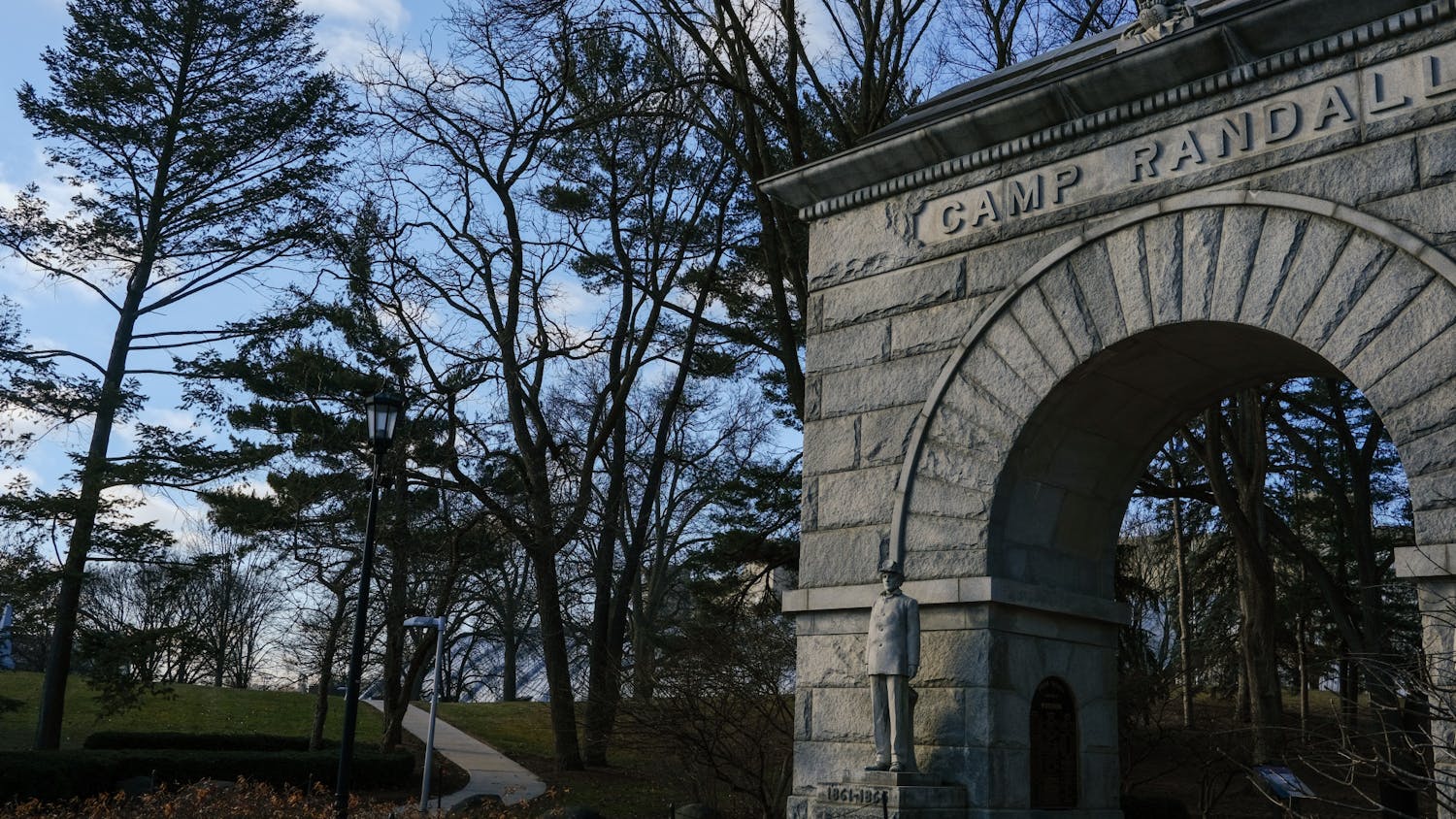There was a time in America when Michael Moore was a cult figure, a low-key rabble-rouser who drew a moderate amount of attention. Then came \Bowling For Columbine,"" which pulled Mr. Moore into a whole new level of fame and controversy. And if ""Columbine"" made him a full-blown celebrity, last summer's ""Fahrenheit 9/11"" turned him into a phenomenon. Now as recognizable as Britney Spears or Tom Cruise, Moore is perhaps the most polarizing figure in both politics and entertainment. He's been labeled as a shameless egomaniac, a heroic journalist and everything in between. Yet for all the varied opinions of Moore himself, ""Fahrenheit 9/11"" drew almost nothing but praise from film critics. RottenTomatoes.com, a Web site that draws together massive amounts of film reviews and figures out what percentage of them are positive, says 85 percent of reviews culled were positive ones (one review posted on Fox News' website even referred to it as ""brilliant."") So if Moore himself draws such heated reactions, why has his film received such doting from most mainstream critics? Is ""Fahrenheit 9/11"" really as good as Michael Moore believes it is? The answer is no; but it's still a good movie, even if does have some faults.
Separating all the hype, controversy and dollar signs aside is hard with any film, but the nature of documentaries makes ""Fahrenheit 9/11"" especially difficult. One tactic Moore employs that is not to his favor is the ultra-tacky inclusion of pop music as a joke that doesn't really need to be there. The Go-Go's ""Vacation"" plays while Moore says that Bush spent roughly 40 percent of his first months in office on vacation. The theme from ""The Magnificent Seven"" plays over a western-themed parody of the war in Afghanistan. Examples like this may get a chuckle at first, but it cheapens the film as a whole. Even worse, they take away from material that should be making a more serious impact on audiences. Another tactic Moore uses that doesn't work as well as he'd like are his usual gimmicks, such as when he drives an ice cream truck around Washington, D.C., and reads the USA Patriot Act out loud. But perhaps this is a moot point. Onscreen antics are, for better or worse, what separates Moore from other documentary filmmakers. One of the principal reasons he has been successful is that he uses humor to draw in audiences to a genre that usually does little business at the box office. But ""Fahrenheit 9/11"" has strong enough subject matter that it doesn't need Moore to try as hard as he usually does. It's a lot like trying to hit a home run when you don't have to.
Fortunately, Mr. Moore does recognize this to a certain degree. ""Fahrenheit 9/11"" may have artistic cheap shots at times, but as the film progresses it improves in quality. When Moore is off-camera, the film is at its best. This isn't to say that the movie shot itself or that Moore was only hindering it. It's just that his skills behind the camera are more valuable to the film than when he is on-screen. The majority of ""Fahrenheit""'s strength comes from the questions Moore raises about issues such as the bias and cheerleading of the American media toward the Iraq war. His footage of American troops is especially important, as such material hasn't been seen by most citizens. Probably most powerful is the Lila Lipscomb segment, as the footage of the grieving mother is some of most important ever captured on film, documentary or otherwise.
There is an x-factor in judging ""Fahrenheit 9/11,"" and that is its factuality. There have been some rumblings about Moore doctoring points in the film, and an Illinois newspaper took offense to a headline it says was manipulated. There are numerous Web sites devoted to exposing what they see as deceptions in the film (a simple ""Google"" search online is more than enough to find them), though they range largely in credibility. There does not seem to be any flat-out lies in ""Fahrenheit,"" but Michael Moore does make it difficult at times to separate what is fact and what are his opinions. As is the case with all documentaries, Moore should be taken with a grain of salt. Still, I find that he is on track when it comes to the larger issues at hand, such as the Saudi Arabian influence on the Bush administration, the usage of fear to keep citizens in check, and the validity of the war in Iraq. These are things that needed to be addressed and weren't being touched by the media. It is the evidence presented dealing with these larger issues that is vastly more solid than issues such as what George W. Bush was doing while he was on ""vacation"" in the summer of 2001.
A friend of mine asked me if I agreed with the statement that ""Fahrenheit 9/11"" was one of the most important documentaries ever made. I answered yes, but mostly because of its box office performance and that it will probably open up a whole new era of documentary films that can make the genre more financially rewarding for filmmakers. As a film, it's good, but not phenomenal. It certainly isn't best picture caliber, as Moore thinks it is. It's too bad the first half of the film isn't as good as the second. For those of us disgusted with the lies and corruption of the Bush administration, ""Fahrenheit 9/11"" was supposed to be a magnificent call to arms against what is wrong in the White House, a great film that would go down in history as a political catalyst. Perhaps that notion is what has led so many critics to praise it so much. But maybe they also see it for what it is-the first documentary to truly become a cultural landmark in American history, and a brave attempt at something never done before-the unseating of a president through film. Even if it has faults, the movie also has moments of brilliance. ""Fahrenheit 9/11"" will certainly be remembered for its controversy and its $120 million box office gross. It would be a shame if it were ignored as a film.
Dan Marfield's column runs every Monday. Michael Moore never runs. You can reach him at ddmarfield@wisc.edu.





